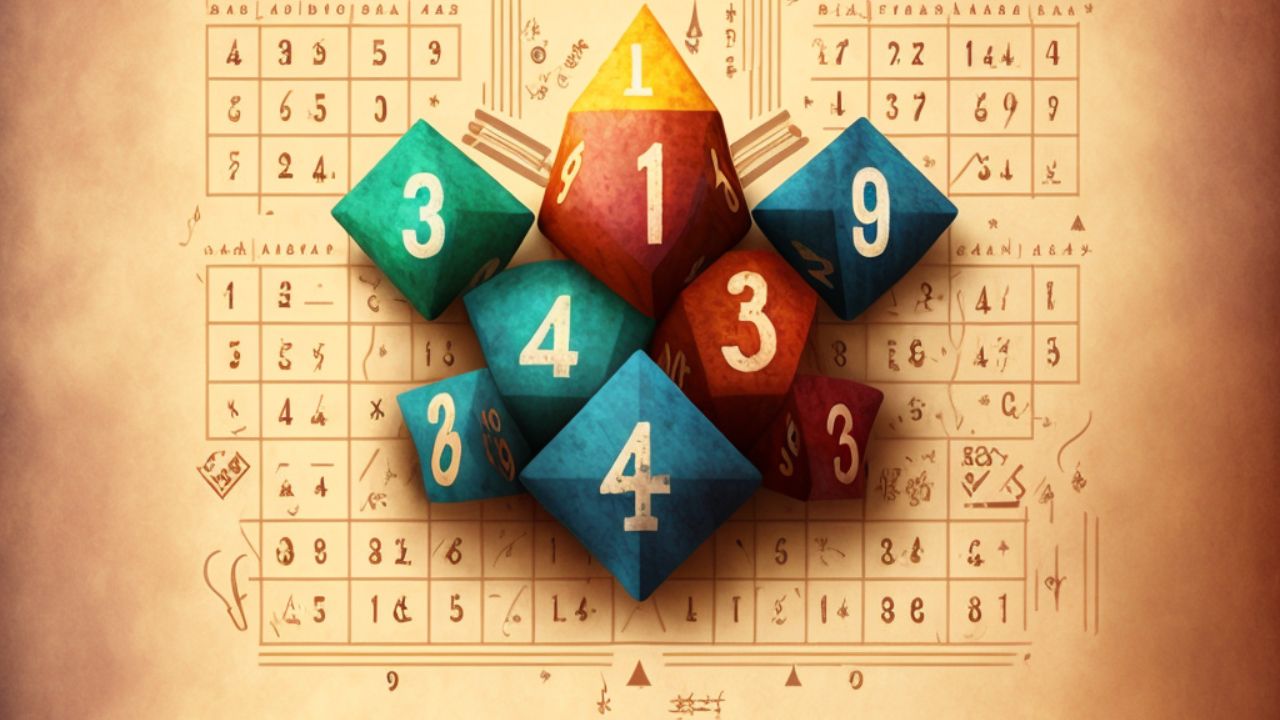Some see it as a sin, and others see it as an educational problem to solve. However, there’s nothing like seeing a group of mathematical experts and probability scientists look at a Casino, say in Las Vegas, as a platform for experiments.
All of this can be read in a book that just came out called “The Perfect Bet: How Science and Math Are Taking the Luck Out of Gambling.” It takes a different approach to how we see betting by Adam Kucharski, a Mathematician. So instead, this book takes you through a journey of where probably even came from (hint – from a game of dice) to the now Hollywood-made movie of a bunch of students from MIT using math to count cards and win big in Vegas.
Kucharski himself has said he is fascinated by the puzzle-like quality of casino games. Yet his fascination became his full focus when he was in his years as a Ph.D. candidate. Here he noticed that Hedge Funds and other investment firms were actually sports betting to make profits on soccer matches.
That’s when he jumped into and dived right into how math and science were integrated with casinos. He went way back to the times of Galileo Galilei and Johannes Kepler. Even Alan Turing was part of his research. All of them had a keen interest in the study of gambling. Not so ironically, this led to what we know as modern-day theories, such as chaos and game theories, as well as the statistics that we use today.
I had the pleasure of speaking to Kucharski about the book and all the knowledge we’ve learned from casino games many look at as taboo. Edits have been made to our discussion to keep it abridged.
Your book comes with many stories of mathematicians battling casino games and winning. Which was the best strategy you discovered from all those stories?
The Cash Winfall situation was fantastic. It started with a project for math back in 2005 by MIT students. They started to take a closer look at lotteries. It was well known about how lotteries were money sinks and that the odds were astronomical, especially regarding the jackpot. Yet the Cash Winfall lottery had a unique clause in the cases where the jackpot was at a certain amount, and no one would win it. Then those prizes would go to the next tier and be broken down to those who had correctly guessed less of the numbers.
It didn’t take long for the calculations to come out from these students that when the jackpot wasn’t won, then it was plausible that with a certain amount of tickets purchased, plus a set of number combinations, you could come out on top and net out with a profit.
I love it because it starts simply enough to test a hypothesis. It then transformed into a business venture with systemic operations. That company created syndicates catching on quickly and made a profit. The students revised their approach and were actually able to trigger another rolldown faster when the jackpot hit $2 million and beat out the syndicates!
It’s always great to see how the correct application of mathematics can help to prove that lotteries and other gambling-type games can, in fact, be beaten. However, it’s this discovery phase looking for the way through these systems, whether through loopholes or pure math, that’s enticing.
This sounds great for current students of either physics or math looking to crack future games. Yet, for the average person, is this a plausible way of making money fast or does this only apply to Ph.D. candidates in relevant fields?
First, getting rich fast takes a lot of work. The strategies mentioned here and in my book required exceptional levels of work and effort.
With that said, I feel these stories showed me that these ideas are not coming from gamblers trying to beat a system. They are coming from the mindset of facing risk and how to overcome that risk and uncertainty. Gambling is a perfect example of making choices when you don’t have all the details in front of you. This can be used to dive deeper into learning how to best make decisions and where skill and luck are established.
Has gambling taught anything to science?
Absolutely. Even with my focus today looking at how a disease would spread in an outbreak. The methods that we primarily use can find their origins within game theory and gambling. We go back to probability being developed back in the 16th century from dice games. Statistical theory can also find its roots in similar dice games and from when roulette hit the scene, which was barely more than a century ago.
Dare I ever say that games have helped with our modern computational methods. For example, a mathematician looked at the variation of solitaire but opted for probability methods versus simply trying to overcomplicate the calculations. He could use that to randomly build out simulations of the outcomes, which eventually helped build out a very non-random pattern. It’s famously known as the Monte Carlo method and a common tool we use in simulations today.
Games, however simple, have been studied and have helped us apply the results to many areas of science today.
I’ve noticed that most of the betting successes discussed in your book didn’t come from gamblers but from academics. Typically these academics did all the hard work but didn’t keep the winnings. What stopped them?
For starters, it was almost considered a fringe or outside concept for a scientist to spend time looking for useful methods from casino games or gambling. Yet that’s a shame, really, because these outsiders have produced some fantastic results.
Let’s take a moment to look at Edward Thorp. He was one of the earliest users of card counting in blackjack that people still use today. So naturally, he would be ridiculed for using these obscene strategies that no one had ever thought of before, even though he would win. Yet he was a scientist and not a gambler of any sort. Instead, he wanted to postulate or prove a theory he was working on.
I find it strange that they didn’t pivot their careers into something much more lucrative, but I also get it. It wasn’t their original intention. Instead, gambling helped them with fleshing out their ideas or concepts to help them with their jobs. Yet now, I would easily say anyone in mathematics that touches quant or predictive analytics, gambling and betting helps hone some skills that would help them.
What about people who make mistakes with predictions? What have you been able to learn from that? For example, there’s a part in your book about people gambling too much on underdogs in horse races. Are there other mistakes that are also common?
It’s more of a bias that takes over. Many favor those long odds and the long shot of winning that we see in horse racing. The odds seem so lucrative if they win, but many people tend to overestimate the chances of the win. Then if they win, it becomes the focus, and they think it can easily happen again, which is highly unlikely. This has also transitioned into sports betting.
Then there’s the improper use of strategies that is known as the Monte Carlo fallacy. You may have even tried it once when you were playing roulette. If the same colour comes up multiple times, naturally, people will think that the opposite colour will come up soon. However, it ignores the odds and the fact that the result will always be random.
Then there’s something known as gambler’s ruin. Another psychological bias where gamblers will win their bets and then increase the amount of money for their next bet. This is because they think they are able to win easier. Yet when the opposite happens, they won’t reduce the amount they’re betting. When you put this up mathematically, you’ll end up with nothing in the end. So again, bankroll management in gambling is key here, where you manage the risk without emotion.
I loved how you were able to intersect the financial industry with gambling. How do you see the line between the two getting confusing?
Actually, I’ve started to notice that there’s become a creation of betting syndicates which behave similarly to hedge funds. In the past, these syndicates have been anonymous and private, with only a handful of people involved. However, now they’re expanding their reach for external investors and openly looking for those with strong mathematical backgrounds, especially PhD students in the relevant fields.
Let’s look at some overlap and how different jurisdictions call it betting while others call it an investment strategy. First, look at spread betting; this is where you take a bet on how much the amount of change on a stock is. The U.K. says it’s gambling, Australia says it’s an investment, and there are capital gains on the returns. The U.S. considers it gambling and illegal as well.
It also seems relatively easy for people to think about betting and then finance as there are ideas that end up working for both industries. For example, those that built up casino strategies could also make a substantial amount of money in finance. That’s because they saw finance as another game where only the right strategy needed to be applied.






